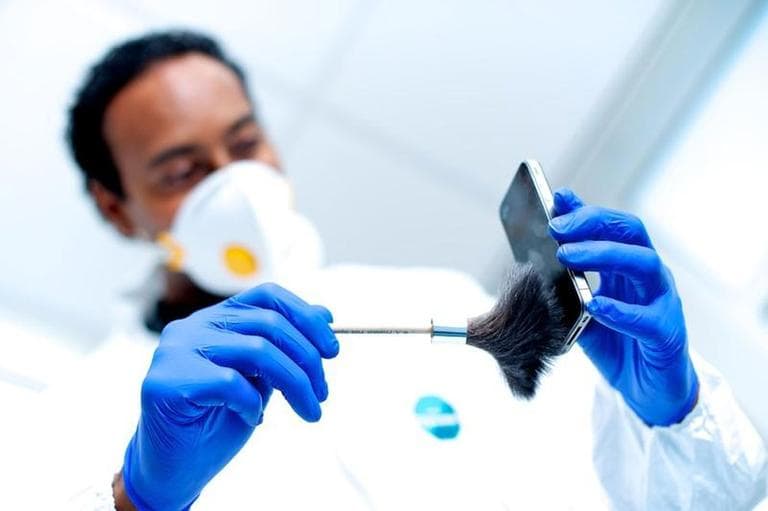Advertisement
Questions About Forensic Evidence
ResumeCrime labs are big on television — think "CSI." In the real world, big questions are being raised about forensic evidence. We'll investigate.

On the TV crime lab shows — like "NCIS" and "CSI" — the wizards of forensic investigation can nail a case like nobody’s business. Give them a hair or a bite mark or a burn pattern or a bullet, and they've got the case solved. A lot of Americans have bought that. A lot of law enforcement has used that.
But for years, people in the know have said, "Wait a minute, it’s not that simple."
Now the FBI itself has hit the pause button. It is reviewing thousands of cases where forensic evidence looks shaky and reviewing the effectiveness of a lot of classic forensic evidence itself.
This hour, On Point: Forensic evidence on trial.
--Tom Ashbrook
Guests
Jack Nicas, national news reporter for the Wall Street Journal.
Barry Logan, president of the American Academy of Forensic Sciences who was appointed the Director of the Forensic Laboratory Services Bureau for the Washington State Patrol in 1999. National Director of NMS Labs, an independent forensic laboratory in Philadelphia.
Peter J. Neufeld, co-director of the Innocence Project and former public defender with the Legal Aid Society in the Bronx. He taught Trial Advocacy at Fordham University Law School and in 1995 and 2000, he was appointed to serve on the New York State Commission on Forensic Science by then-Governor George Pataki.
From Tom's Reading List
The Washington Post: How Accurate Is Forensic Analysis? - "Many forensic techniques developed in crime labs to aid investigators, and research into their limits or scientific validity was never a priority. Except for DNA, no method has been shown to be able to consistently and accurately link a piece of evidence to an individual or single source."
The Atlantic Wire: Justice Will Review Two Dozen Capital Cases Due To Flawed FBI Testimony - "An expert witness testifies at a trial to provide evidence in his or her field. Over the course of several decades beginning in the late 1970s, witnesses with the FBI went further, suggesting that particular evidence—hair-match analysis—was a stronger indicator of guilt than the science supports. They tried, in other words, to help prosecute the case. Now, in an apparently unprecedented move, the Department of Justice has agreed to review 120 convictions that may have been influenced by the agents' exaggerated testimony. In 27 of those cases, the convicted individuals were sentenced to death."
This program aired on July 23, 2013.